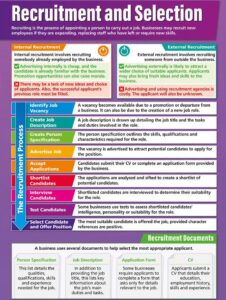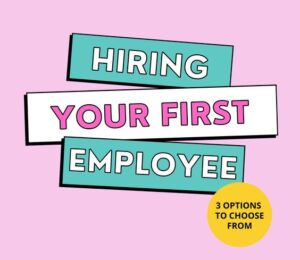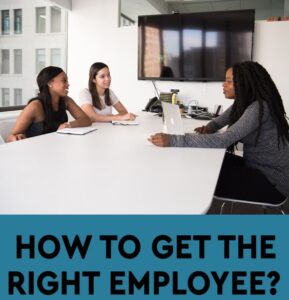Your Top 3 Questions On Affording Your Next Recruit, Answered
Affording The Next Recruit…
You can’t grow.
It’s not going to happen.
If you insist on holding on to every task that you can.
There’s only one way to get out of such a sticky situation.
Where you are holding on.
And the tasks are building up.
Whilst your time is dwindling away.
It’s stressful as hell.
And I know because I’ve been there.
But it all depends on whether you’re open-minded or not.
Because there are 2 types of people in this world.
Those that want to grow, scale, and are willing to step out of their comfort zone to get there.
And those that aren’t.
Picture this…
Just imagine how different your life could be, 6 months from now if you had some help.
If the time-consuming tasks that land on your desk, didn’t…
…because they were landing on ‘someone’ else’s.
And ‘someone’ enjoyed the tasks.
They did a good job.
And it meant that you had some free time.
But please, I hear you scream, tell me…
How do you do it?
What do you need to get out of this sticky situation?
Well, the only way to get out of such a predicament.
Is with people. You need people!
That’s the first decision that you HAVE to make if you want to move forward.
Without it, you’ll end up as a self-employed sub-contractor with a job, for the rest of your life.
So whether you’re on your own as a solopreneur right now.
Or you have a team of people but need someone else.
We’re going to show you how you can afford the next recruit and answer all your questions.

Affording Your Next Recruit
Ask Questions – Affording The Next Recruit
Once you’ve made the decision.
You know which decision, the big one…
…that you need to hire to move forward.
And that you’re committed to doing it.
The next step is working out HOW you’re going to do it.
And with that, comes a lot of questions.
For most of these questions, there is no right or wrong answer.
But in this article, you’ll find an unbiased and honest review.
That answers all the questions that you might have about affording your next recruit.
And when you’ve finished, you’ll have new ideas. The kind of ideas that will help you bring someone in to help.
Without breaking the bank.

Recruitment And Selection – Affording The Next Hire
Should I Hire Or Outsource?
It’s a question that often lingers in the minds of business owners just like you.
You’re ready to take that next step and bring in additional help.
But you’re not sure which route to take.
Well, fear not!
We’re here to shed some light on the age-old dilemma of whether to hire an employee or outsource the work.
Let’s break it down for you, shall we?
Hiring: The In-House Advantage
When you hire an employee, you’re bringing someone on board who becomes a part of your team.
They work directly under your supervision, share your vision, and can become an integral part of your company culture.
Plus, having an in-house employee means you have greater control over their work.
And you have the ability to train them to work in ‘your way’.
Outsourcing: The Power of Delegation
On the other hand, outsourcing allows you to tap into a vast pool of specialised talent.
Without the commitment of a long-term employment contract.
You can handpick experts in their respective fields and leverage their skills to get the job done.
By outsourcing, you also free up your time and resources.
The responsibility of managing the outsourced tasks lies with the person that you outsourced to.
So, how do you decide which path to choose? Here are a few key factors to consider:
-
Budget-Friendly Flexibility
Outsourcing can often be a cost-effective solution. But it can also be expensive.
If it’s unlikely that you’ll hire someone with the skills needed part-time, you could outsource.
That would mean you can still have part-time hours instead of paying a recruit full-time.
But here’s the kicker… whoever you outsource to will charge a hefty hourly rate.
Especially for small businesses or startups with limited financial resources.
But on the other hand, there are things that you don’t have to pay.
Things like the typical expenses employees bring. Like employee benefits, office space, equipment, and training.
When you pay a service provider you can go for a predetermined fee for their time and skill. This flexibility allows you to scale your business without taking on the financial burden of a full-time employee. And if things get tight, you can let them go easily.
On the other hand, if it’s easy to hire part-time or hire cheap, you might be better off bringing someone in. The hourly rate will be much lower.
-
Control vs. Convenience
If you prioritise having complete control over your projects, hiring an employee might be the way to go.
In-house hires provide greater availability, immediate responsiveness, and the ability to align their work closely with your business objectives.
On the other hand, outsourcing offers convenience. And it saves you the time and effort of managing additional employees. It allows you to focus on your core competencies while leaving specialised tasks in capable hands.
-
Expertise and Scalability
Consider the nature of the work you need to be done. If you require highly specialised skills for a short-term project or occasional tasks, outsourcing can be a game-changer.
It grants you access to a global talent pool, ensuring you find the right expertise for the job.
But, if the tasks are ongoing and require consistent attention…
…or the need for close collaboration within your team, hiring an employee might be the better choice.
The Bottom Line
Ultimately, the decision between hiring or outsourcing depends on your unique circumstances.
It also depends on your business goals and available resources.
Take the time to evaluate your needs, budget, and long-term vision.
Don’t be afraid to explore a combination of both approaches if it suits you.
Remember, the key is to find the solution that helps you grow.
Now you’ve got a clearer understanding of the pros and cons of each option, go ahead and make that decision.
Your business’s growth and your own sanity are at stake.
Choose wisely and embrace the exciting possibilities that lie ahead.

Full-Time Or Part-Time?
It’s got to be one of the biggest myths in business and recruitment.
And it stops millions of business owners from bringing in some much-needed help.
But I get it.
Because I guess you’re a bit like me.
And if I had this perception, I wouldn’t bring anyone in either.
So what is this belief that holds so many business owners back?
And stops them from hiring?
That you have to recruit someone full-time if you want them to do a good job.
Think about it, if that was the case it would be so difficult to hire your first recruit.
To go from paying yourself.
To paying double the staff expenses overnight.
That’s pretty daunting.
Because the chances are your profit didn’t double overnight.
Neither did your bank balance.
To go from paying £0 on staff.
And then jumping all the way up to a full-time salary…
…that’s scary as hell.
No wonder most people stall, procrastinate, or worry about hiring.
So here’s the thing, you don’t HAVE to hire full-time straight out of the blocks.
Choose whichever option works for you.
If you’ve got the cash flow to afford it, and you need someone full-time, by all means, go for it.
But if you’re worrying about how you’ll ever be able to afford anyone, start with part-time.
It could be as little as 5 hours a week.
Then as they get better, and as the business grows, you can increase the amount of hours they do each week.
There’s no rule book that says you have to hire full-time.
So be smart about it.
Instead of worrying about resources.
Worry about being resourceful.

Hiring Your First Employee
Self-Employed Or Employed?
Should you hire someone as a self-employed contractor or as an employee?
Let’s delve into this dilemma and find the best fit for your business.
Self-Employed: Flexibility and Independence
Hiring a self-employed contractor can offer you flexibility and independence.
If they are underperforming, it’s MUCH easier to get rid of them.
You can even engage their services on a project-by-project basis.
That’s going to help you to scale up or down as needed.
Self-employed contractors often bring their own tools and equipment and work autonomously.
It reduces the need for constant supervision.
However, keep in mind that self-employed contractors are responsible for their own taxes, insurance, and other legal obligations.
Employee: Commitment and Team Integration
Bringing someone on board as an employee provides a stronger level of commitment and integration into your team.
Employees work exclusively for your business, follow your processes and procedures, and contribute to your company culture.
You have more control over their work schedule. And you can offer benefits such as paid leave, health insurance, and retirement plans.
But, employing someone also means taking on additional responsibilities. That includes payroll taxes, benefits administration, and legal compliance.

So, how do you decide which option is right for you? Consider the following factors:
-
Nature of the Work
If the tasks you need help with are project-based or require specific expertise for a short amount of time, hiring a self-employed contractor might be the way to go.
It allows you to tap into specialised skills without the long-term commitment.
On the other hand, if you have ongoing work that requires consistent attention and integration into your team…
…hiring an employee can provide the stability and reliability you need.
-
Control and Supervision
Evaluate how much control and supervision you want or need over the person’s work. If you prefer a hands-on approach, employing someone allows for greater control and direct management.
You can provide guidance, monitor progress, and align their work closely with your business objectives.
Alternatively, if you value autonomy or freedom and want to focus on strategic tasks, hiring someone self-employed grants you the freedom to delegate responsibilities and trust them to deliver results independently.
-
Legal and Administrative Considerations
It’s important to understand the legal and admin implications of each option.
Hiring an employee comes with additional obligations such as payroll taxes, benefits, and compliance with employment laws. Ensure you have the resources and knowledge to handle these responsibilities if you go down that route.
On the other hand, engaging a self-employed contractor means fewer admin burdens. But, make sure the individual qualifies as self-employed according to tax and employment regulations. You want to avoid potential legal issues.
In the end, the choice between hiring a self-employed contractor or an employee depends on your specific needs, the nature of the work, and your long-term business goals.
Assess the advantages and disadvantages of each option and select the one that aligns best with your resources, work requirements, and management style.
Remember, the goal is to find the right fit that allows you to focus on growing your business while leveraging the skills and support you need.
Embrace the opportunity to expand your team.
And enjoy the benefits of shared responsibilities and increased productivity.
Could They Work On 100% Commission?
Yes, of course.
It’s a great way of affording the next recruit.
Especially if they work in sales.
Or they deliver operations.
Working on 100% commission has its pros and cons.
But it can also be costly.
For example, if they don’t perform, you don’t pay them.
That’s a massive advantage.
But if they over-perform, you could end up spending much more than you anticipated.
But the main challenge when it comes to recruiting 100% commission…
…finding someone that’s happy to do it.
People like to have safety and security.
So if you do decide to go down this route, know this…
…It’s doable.
It’s possible.
But you MUST work hard at recruiting and be persistent.
If you do, you could end up hiring a whole team of salespeople on 100% sales commission.

Affording The Next Recruit
Domestic Or International?
The final thing to ask yourself is whether you should hire in the UK, in the town you work, or internationally.
It can make all the difference to affording the next recruit
The world is changing fast.
A few decades ago, you had no choice.
Everybody worked from the office so you had to find the best talent that lived within travelling distance from the office.
But since COVID the world has opened up.
Now you can hire the best talent in the world!
And here’s the cherry on top.
If they live and work in a country with a weaker economy, you might get them considerably cheaper than you would in the UK.
Even though they’re better!
So if the next hire you want can work remotely.
And you don’t need them face to face for anything.
You could go international, and get someone better, for cheaper.
Companies like Job Rack can help you find applicants all over Europe or the world.
So instead of having the best talent within traveling distance to your office, you could have the best talent in the world.
Summary – Affording Your Next Recruit
Put it all together and affording your next recruit could be simpler, cheaper, and easier.
And it’s a must. It’s the only way you can grow a business.
You can’t grow a company by working in it, you HAVE to work ON the business.
Think about it, instead of hiring a full-time, skilled employee at £40,000 per year.
With benefits such as holidays, pension contributions, and national insurance on top.
You could hire someone part-time, that works internationally as a self-employed team member.
Instead of spending £40,000 per year plus benefits, you could be spending £10,000 per year with no benefits.
All you have to do is think outside the box a little.
Be resourceful.
And put some effort in.
That way, you can easily afford the next recruit.
And it won’t stop your business from growing.





